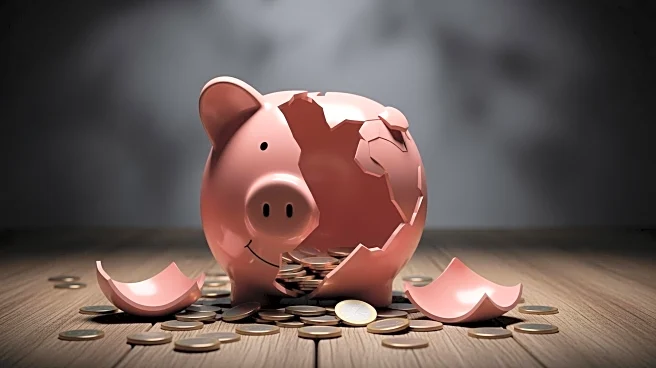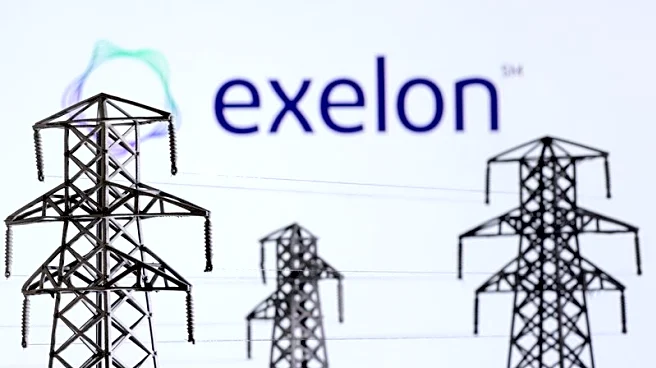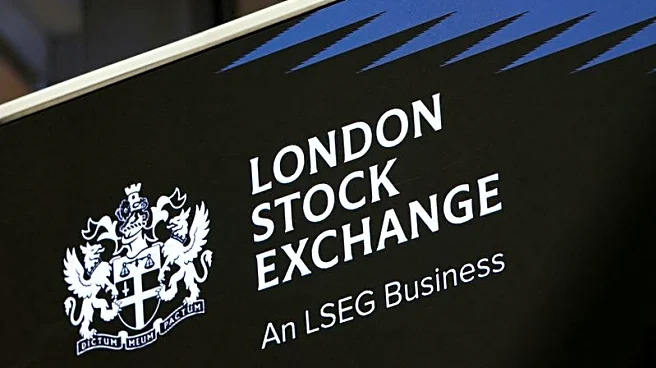What's Happening?
A recent report from LegalShield highlights a significant increase in bankruptcy inquiries, reflecting heightened consumer stress due to economic challenges. The Consumer Stress Legal Index, which tracks
legal inquiries, rose by 4.4% between June and September, reaching its highest level since March 2020. This surge is attributed to labor market weaknesses, inflation, and growing debt burdens. LegalShield's data, based on approximately 150,000 monthly calls to lawyers, indicates that families are entering 'crisis mode' as they face rising housing costs and unsecured debt. The report suggests that the economic pressures are leading more Americans to seek legal advice, particularly concerning bankruptcy.
Why It's Important?
The increase in bankruptcy inquiries underscores the broader economic challenges facing American households. Despite positive GDP growth and strong corporate earnings, many Americans are not experiencing the benefits of economic expansion. Consumer confidence surveys reveal widespread pessimism about financial prospects, indicating that economic pressures are affecting consumer behavior. The LegalShield report highlights the impact of job losses, rising prices, and high borrowing costs, which are creating significant financial strain. This situation could lead to reduced consumer spending, particularly on non-essential items, affecting economic growth and stability.
What's Next?
LegalShield's senior vice president of consumer analytics, Matt Layton, predicts that consumer spending will likely decrease in the coming months, especially for holiday purchases. Without a reduction in borrowing costs and easing housing pressures, consumer stress is expected to rise further. Layton anticipates a significant increase in actual bankruptcy filings in the first quarter of next year, as the correlation between inquiries and filings remains strong. This trend could have implications for economic policy and consumer financial health, prompting potential interventions to address the underlying economic issues.
Beyond the Headlines
The rising consumer stress and bankruptcy inquiries may have deeper implications for societal well-being and economic policy. As financial pressures mount, there could be increased demand for social services and legal assistance, highlighting the need for policy measures to support vulnerable populations. Additionally, the reliance on alternative financing methods, such as buy now, pay later loans, suggests shifts in consumer behavior that could influence financial markets and lending practices.










